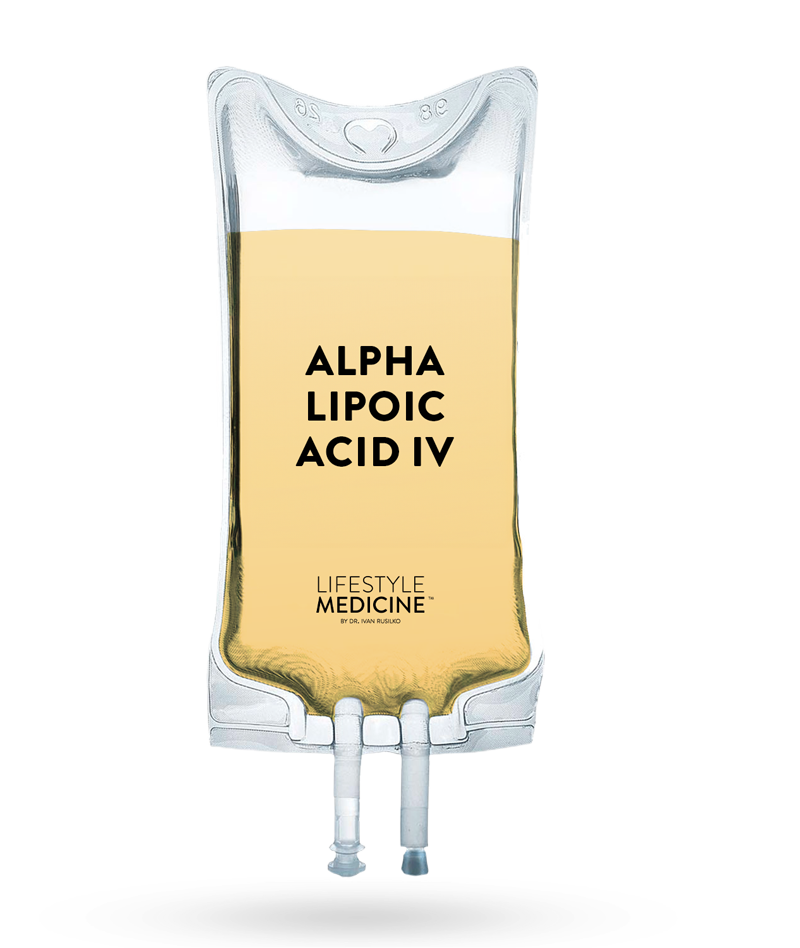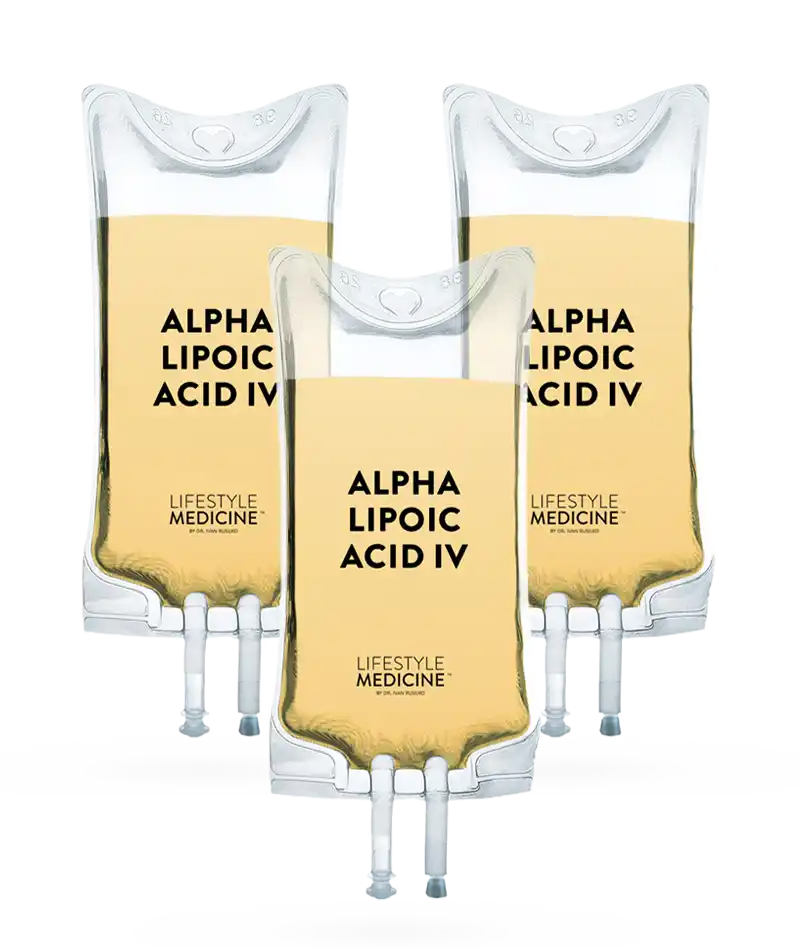
Alpha lipoic acid IV
Enhance energy, support nerve health, and fight oxidative stress with Alpha Lipoic Acid IV Therapy—your key to vibrant well-being and cellular protection

SUPER ALA

SUPER ALA

MEGA ALA

MEGA ALA
What is ALA IV?
ALA IV Therapy Benefits

Antioxidant Support
Alpha-lipoic acid is a powerful antioxidant that helps neutralize free radicals in the body, which can contribute to oxidative stress and damage to cells.
Energy Production
Alpha-lipoic acid plays a role in the conversion of glucose into energy in the mitochondria of cells. By supporting mitochondrial function, alpha-lipoic acid may help improve energy levels.

Blood Sugar Control
Some research suggests that alpha-lipoic acid may help improve insulin sensitivity and reduce blood sugar levels, which could be beneficial for individuals with diabetes or insulin resistance.

Neurological Support
Alpha-lipoic acid has been studied for its potential neuroprotective effects and its ability to support cognitive function. It may help protect nerve cells from damage and support healthy brain function
Detoxification and Liver Support
ALA supports the body's natural detoxification processes, helping to remove heavy metals and toxins while promoting liver health.
FAQs
Duration: The duration can vary depending on the dosage and your treatment plan, ranging 30 minutes.
Experience: You’ll be comfortably positioned with an IV line inserted, allowing the ALA solution to flow into your bloodstream. Most people describe the sensation as relaxing and well-tolerated.
Activities: You can typically read, listen to music, or relax during the infusion.
Monitoring: You’ll be monitored for a short period after the infusion to ensure you’re feeling well and experiencing no adverse effects.
Results: It’s important to have realistic expectations. Individual experiences vary, and noticeable effects often take time and multiple treatments depending on your condition and goals. Some may experience increased energy, improved cognitive function, or better sleep.
While ALA is generally well-tolerated, some individuals may experience mild side effects such as nausea, stomach upset, or skin rash. In rare cases, allergic reactions may occur. ALA may interact with certain medications or health conditions. Inform your healthcare provider about any medications, supplements, or health conditions you have before starting the therapy to prevent potential interactions or complications.
The frequency of treatments can vary depending on individual needs and goals. Some people may opt for weekly sessions, while others may choose to have treatments less frequently. It’s best to consult with your healthcare provider to determine the most appropriate treatment plan for you.


